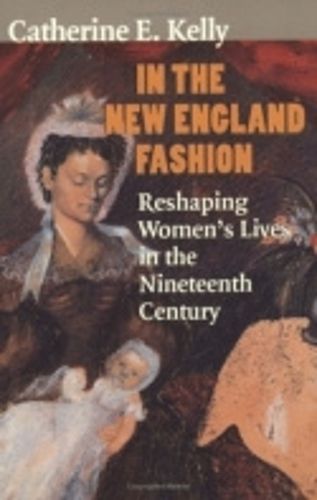Readings Newsletter
Become a Readings Member to make your shopping experience even easier.
Sign in or sign up for free!
You’re not far away from qualifying for FREE standard shipping within Australia
You’ve qualified for FREE standard shipping within Australia
The cart is loading…






In the first half of the 19th century, rural New England society underwent a radical transformation as the traditional household economy gave way to an encroaching market culture. Drawing on a range of diaries, letters and published writings by women in this society, Catherine E. Kelly describes their attempts to make sense of the changes in their world by elaborating values connected to rural life. The narratives reveal the dramatic ways female lives were reshaped during the antebellum period and the women’s own contribution to those developments. She also demonstrates how these writings afford a fuller understanding of the capitalist transformation of the countryside and the origins of the northern middle class. Provincial women exalted rural life for its republican simplicity while condemning that of the city for its aristocratic pretension. The idyllic nature of the former was ascribed to the financial independence that the household economy had long provided those in the farming community. Kelly examines how the juxtaposition of rural virtue to urban vice served as a cautionary defence against the new realities of the capitalist market society. She finds that women responded to the transition to capitalism by upholding a set of values which point toward the creation of a provincial bourgeoisie.
$9.00 standard shipping within Australia
FREE standard shipping within Australia for orders over $100.00
Express & International shipping calculated at checkout
In the first half of the 19th century, rural New England society underwent a radical transformation as the traditional household economy gave way to an encroaching market culture. Drawing on a range of diaries, letters and published writings by women in this society, Catherine E. Kelly describes their attempts to make sense of the changes in their world by elaborating values connected to rural life. The narratives reveal the dramatic ways female lives were reshaped during the antebellum period and the women’s own contribution to those developments. She also demonstrates how these writings afford a fuller understanding of the capitalist transformation of the countryside and the origins of the northern middle class. Provincial women exalted rural life for its republican simplicity while condemning that of the city for its aristocratic pretension. The idyllic nature of the former was ascribed to the financial independence that the household economy had long provided those in the farming community. Kelly examines how the juxtaposition of rural virtue to urban vice served as a cautionary defence against the new realities of the capitalist market society. She finds that women responded to the transition to capitalism by upholding a set of values which point toward the creation of a provincial bourgeoisie.